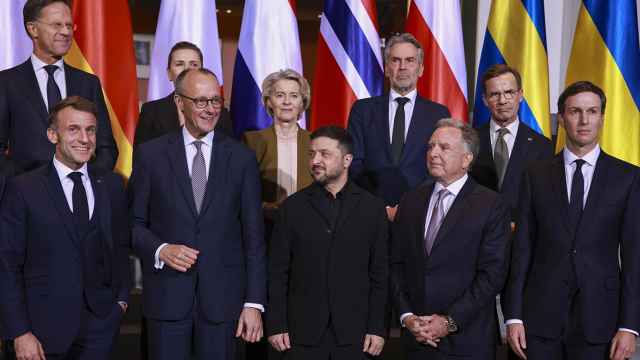VIENNA — Bank Austria, the central and eastern Europe arm of Italian bank UniCredit, expects to keep making solid profits in Russia despite Western sanctions, thanks in part to its ability to raise money locally, though it warned of lost opportunities.
Bank Austria's first-half pretax profit in Russia rose 3 percent to 247 million euros ($330 million), more than a quarter of the total and making it the bank's single most profitable market. Russia also accounted for most of its Central and Eastern Europe loan growth in the period, officials told a news conference on Wednesday.
"Given what we know now about sanctions, we assume that in Russia we will continue to have a very significant profit contributor. We feel we are set up well," chief executive Willibald Cernko said.
He was referring to sanctions that the European Union imposed on Moscow to punish support for rebels in eastern Ukraine. The situation remained tense amid warnings from Poland and NATO that Russian troops could invade Ukraine.
Cernko said the Russia business had a solid portfolio, was well-capitalized and could refinance locally, ensuring profits there were sustainable.
However, he cited comments from parent UniCredit on Tuesday that sanctions against Russia could cost the group 10-15 million euros in lost revenue opportunities.
Bank Austria lost 29 million euros before tax in Ukraine, where talks to sell its local unit continued.
In a research note, Berenberg analysts said UniCredit was among the European banks most exposed to Russia, second only to Raiffeisen Bank International in terms of Russian loans as a percentage of book value and assets.
Berenberg said the direct impact of Russian sanctions would be limited, but the indirect fallout could include weaker demand for debt, funding restrictions and deteriorating asset quality.
See also:
Russian Banks in Eurozone Could Face Curbs on ECB Borrowing as Sanctions Bite
A Message from The Moscow Times:
Dear readers,
We are facing unprecedented challenges. Russia's Prosecutor General's Office has designated The Moscow Times as an "undesirable" organization, criminalizing our work and putting our staff at risk of prosecution. This follows our earlier unjust labeling as a "foreign agent."
These actions are direct attempts to silence independent journalism in Russia. The authorities claim our work "discredits the decisions of the Russian leadership." We see things differently: we strive to provide accurate, unbiased reporting on Russia.
We, the journalists of The Moscow Times, refuse to be silenced. But to continue our work, we need your help.
Your support, no matter how small, makes a world of difference. If you can, please support us monthly starting from just $2. It's quick to set up, and every contribution makes a significant impact.
By supporting The Moscow Times, you're defending open, independent journalism in the face of repression. Thank you for standing with us.
Remind me later.





